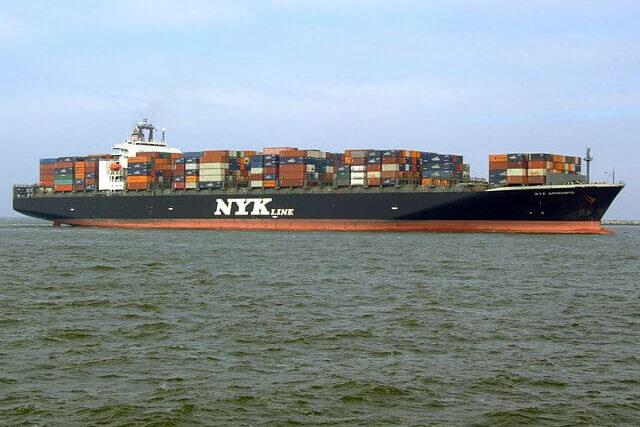
New research suggests that greenhouse gas emissions from shipping could be halved by 2030 without negatively affecting global trade.
This comes as countries convene to discuss the possibility of a new tax on carbon emissions produced by ships. Currently, maritime transportation accounts for approximately 3% of global greenhouse gas emissions, and the industry heavily relies on cheap, heavy, and polluting diesel oil.
The shipping sector has been slow to adopt emissions-reducing technologies, prompting an increasing number of countries to call for a shipping tax. The International Maritime Organisation (IMO), the UN body overseeing global shipping, will hold talks in London to address decarbonisation and consider a potential levy of up to $100 per tonne of carbon produced by ships.
The idea of a shipping levy was also discussed at a summit on a new global financing pact in Paris. Many leaders and financial institutions expressed support for a tax, with the revenue directed towards a “loss and damage” fund to aid countries impacted by extreme weather events. The World Bank estimates that such a carbon tax on shipping could generate $50 to $60 billion annually.
While countries like Japan have proposed a specific carbon tax rate, the US faces challenges in implementing such a measure due to political considerations. President Joe Biden’s administration may encounter resistance from a Republican-controlled Congress. Nonetheless, Treasury Secretary Janet Yellen and climate envoy John Kerry have expressed openness to the idea.
Yellen said: “We’re very focused on the need to raise substantial resources to address climate change and poverty reduction and other global challenges. So we’re very open to innovative approaches. I think it is a very constructive suggestion and would agree with President Macron’s description of the logic of why it would be appropriate, and it’s something that the US will look at.”
Kerry said: “I support some kind of revenue raising on a broad basis, but this is not administration policy. I personally have supported pricing carbon, but I’m not advocating a tax or a fee or anything at this point. Certainly the administration is not, but we have to find a way to find more concessionary funding.”
Eamon Ryan, the environment minister of Ireland, who acts as the EU’s lead negotiator on loss and damage, said the IMO discussions were finely balanced. “It’s 50:50, it’s not certain that it will be agreed,” he said.
He urged all countries at the 175-member IMO to take the first steps towards a tax. “We need to show real commitment on addressing the climate crisis, and these mechanisms would give the developing world confidence that it’s no longer just time for talking, it’s time to act.”
Ryan would also like to see aviation taxed for the loss and damage fund. “The great advantage there is on equity – it is the wealthier people who fly,” he said. “One euro on a plane ticket would give us €5bn a year. That’s not a small contribution to the effort we need to make.”
As the IMO meetings approach, a research report by CE Delft highlights that CO2 emissions from shipping could be reduced by one-third to one-half this decade using existing technologies and innovative approaches, such as hydrogen. By optimising ship operations, implementing modern sails or wind-assist technologies, and adopting experimental fuels like hydrogen, biofuels, or electrification, emissions from fuel use could be significantly reduced within the next decade.
The research findings are essential, as they debunk concerns about the impact of emissions reductions on global trade. Previously, some countries opposed carbon regulation in the shipping industry, citing potential harm to trade. However, the new study shows that implementing emissions-cutting measures would not hinder global trade.
Moving forward, policymakers, industry stakeholders, and international bodies like the IMO must work collaboratively to identify and implement effective strategies to decarbonise the shipping sector. By embracing existing technologies and exploring innovative solutions, the shipping industry can play a crucial role in combatting climate change and achieving a sustainable and resilient future.
——————————————————————————
At Natural World Fund, we are passionate about stopping the decline in our wildlife.
The declines in our wildlife is shocking and frightening. Without much more support, many of the animals we know and love will continue in their declines towards extinction.
When you help to restore a patch of degraded land through rewilding to forests, meadows, or wetlands, you have a massive impact on the biodiversity at a local level. You give animals a home and food that they otherwise would not have had, and it has a positive snowball effect for the food chain.
We are convinced that this is much better for the UK than growing lots of fast-growing coniferous trees, solely to remove carbon, that don’t actually help our animals to thrive.
This is why we stand for restoring nature in the UK through responsible rewilding. For us, it is the right thing to do. Let’s do what’s right for nature!
Donate today at https://naturalworldfund.com/ and join in the solution!

